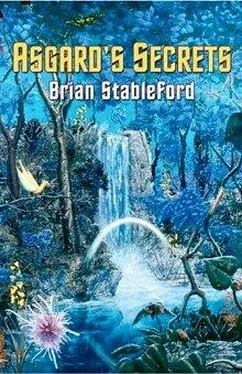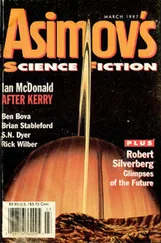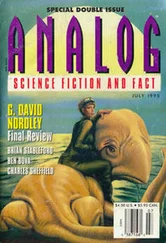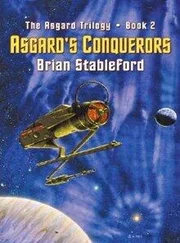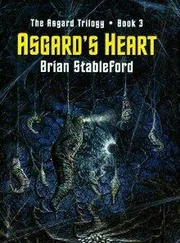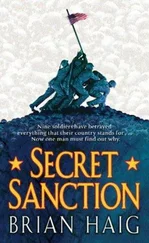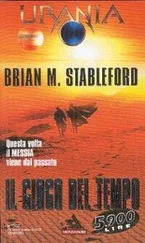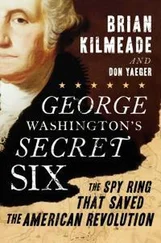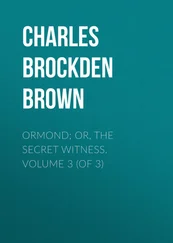The exchange didn’t last long, and was more frustrating than informative. The star-captain’s voice faded into a mist of static, and the trial of my patience began again.
“Doesn’t make much sense, does it?” said Crucero cheerfully.
“If I had to face Amara Guur’s hatchet-men on my own,” I informed him unkindly, “I’d be a very worried man.”
“I’m trained in guerrilla tactics,” he assured me. “I don’t have to kill them all—I just have to stop them setting an ambush. If I can blow them to hell and gone, that’s fine. If I can’t, I’ll let them come down the shaft, so that the star-captain can take care of them. All I have to do is make sure that they can’t set a trap here… and stay alive. Don’t worry about me, Trooper. I’ll hold my ground—just see that you hold yours.”
I didn’t say anything more. I figured I’d asked for what I got.
“Do you want to take a gun?” asked the lieutenant, after a pause. He was offering me a flame-pistol.
“I don’t have room in my belt,” I replied drily. It wasn’t a joke. I was carrying a varied assortment of tools.
Eventually, the cradle came back and it was my turn to take the drop. I was glad to climb into it, figuring that this was the real business at hand. Military manoeuvres, I decided, were inherently uninteresting. All the years of my life had been aimed at this moment, even though I hadn’t realised it for the first twenty or twenty-five of them.
It hadn’t even been my idea to come to Asgard—my friend Mickey Finn had worked hard to convince me, just as he’d worked hard to convince the others who’d come with us. But I knew now that Mickey Finn had been doing destiny’s work. Everything that Mike Rousseau had ever done or thought had been nothing more than preparation for this descent… this penetration… and I was determined to savour it to the full.
While I dropped through the darkness, turning back and forth through sixty degrees as the cradle swung, I pictured myself as the very archetype of Faustian man, claiming the knowledge and the wealth for which I had laid my very soul on the line.
The sweet taste of the illusion was not in the least soured by my awareness that in most of the old versions of the story, Faust had ended up in hell.
The room—if you can call it a room—into which the elevator-shaft opened at the bottom was a sad disappointment. It was quite bare, and as Seme had said, the walls were covered with something very much like ordinary mould. He wasn’t just being uncommunicative when he’d talked about the mould—when he’d mentioned that he’d run through the entire inventory of what there was to be seen. But there was light—a faint radiance, perhaps bioluminescent, emanating from the ceiling and the walls.
There was another door. It had been cut away to open up a space where a man could get through—a very big man—but the edges of the cut had been folded back again, to leave a gap that wasn’t much more than a thin crack. Susarma Lear and Serne hadn’t tried to open it out fully. They were waiting inside it, peering out.
I wanted to go through, but the star-captain held me back. She wanted to wait until Khalekhan was with us, so that we could all go on together. I had been waiting so long that a little more time didn’t matter that much, but I was still annoyed.
I played the beam of my head-light over the mouldy walls, and then looked more closely at the bottom of the elevator-shaft. The floor seemed solid enough; the grooves disappeared straight into it.
“That’s where the elevator went,” I said, softly. I was only talking to myself, but Serne overheard.
“Where?” he asked.
I pointed downwards, and said: “There.”
“It’s solid,” he said. “This is the bottom.”
“It’s solid now,” I agreed. “But you can see that it’s a seal of some kind—look at the meniscus where the plug meets the wall. It must have been a hard-setting liquid which they just pumped in. Naturally they took the elevator car down below the seal, so they could still use it.”
“So?” he said.
“So,” I said, tiredly, “there are other levels further down. Lots of other levels. We’re nowhere near the real centre—yet.”
As usual, my mind was working faster than my speech. Here, they’d sealed the shaft. Why? Because this was the last of the abandoned levels? Was the civilization of Asgard still flourishing, just beneath our feet? It had to be. I felt it in my bones. Valhalla was there—the home of the gods, to which heroes went when they had proved themselves worthy. I was tempted to get down on my hands and knees, to put my ear to the ground, in case I could catch the distant thrum of mighty engines, or the murmur of happy crowds.
“It’s not very bright out there,” said the star-captain, her cool voice cutting through my reverie like a knife. “The temperature is above the freezing-point of water, but it’s only a tunnel. Looks pretty bleak. Not much wildlife about.”
I wanted to join her, but I didn’t. I didn’t want to have to stand there, peeping through a crack, when I ought to be forcing my way through. They had already assured me that there was nothing much to be seen.
Even when Khalekhan had arrived there was a further pause for military ritual, as the starship troopers checked their guns and confirmed with empty gestures their readiness for whatever was to come. My participation was, to say the least, half-hearted. But in the end, we were ready.
“I’ll go first,” I said, hopefully.
Susarma Lear probably figured that if there was going to be an ambush, I might as well be the one to walk into it. I was expendable now.
For whatever reason, she waved me on.
And I went.
I stepped across the threshold between the worlds without much difficulty. The door yielded easily enough to the pressure of my hand. I wasn’t surprised to find myself in a corridor; it seemed only logical that there’d be some kind of establishment here similar to the one at the top of the shaft. This corridor, however, was very much warmer than the one up above, and like the room from which we’d come it was dimly lit by some kind of bioluminescence. The beam of my headlight picked out scuttling white insects as they hurriedly disappeared into various cracks and coverts. The largest of them was no bigger than my thumbnail.
I checked the temperature; it was 276 degrees Kelvin— three degrees above the freezing point of water, assuming that the pressure was close to Skychain City’s norm. It couldn’t be comfortable for the insects, if they were exothermic, but it was obviously tolerable. Since the shaft had been open the local air temperature must have dropped very noticeably; outside, it would surely be warmer.
I led the way along the passage, following the glaring traces left by the giant android as his feet had scuffed the organic slick that covered the floor. We passed through two more doorways, each one opened by means of brute force and left agape. It wasn’t until we reached the main door that we found more evidence of cutting, and the gap had been closed again. I had to lever the flap open again, but I set to it with a will. I’d seen virtually nothing of the establishment itself—I hadn’t the slightest idea whether it was a laboratory or a Laundromat—but I didn’t want to waste a minute. My only ambition was to get outside, into the cavies’ version of open territory.
I held my breath as I forced a way through, not letting it out again until I was out. I might have said something to the people behind me, but I really can’t remember.
The light was brighter on the outside. It was diffuse light, pure white in colour; it seemed to emanate from everywhere overhead, but not quite uniformly. The “sky” was faintly mottled, with occasional black spots. It was almost like a negative image of a planetary sky, with dark stars and shadowy clouds set against a radiant background the absolute opposite of night-black.
Читать дальше
